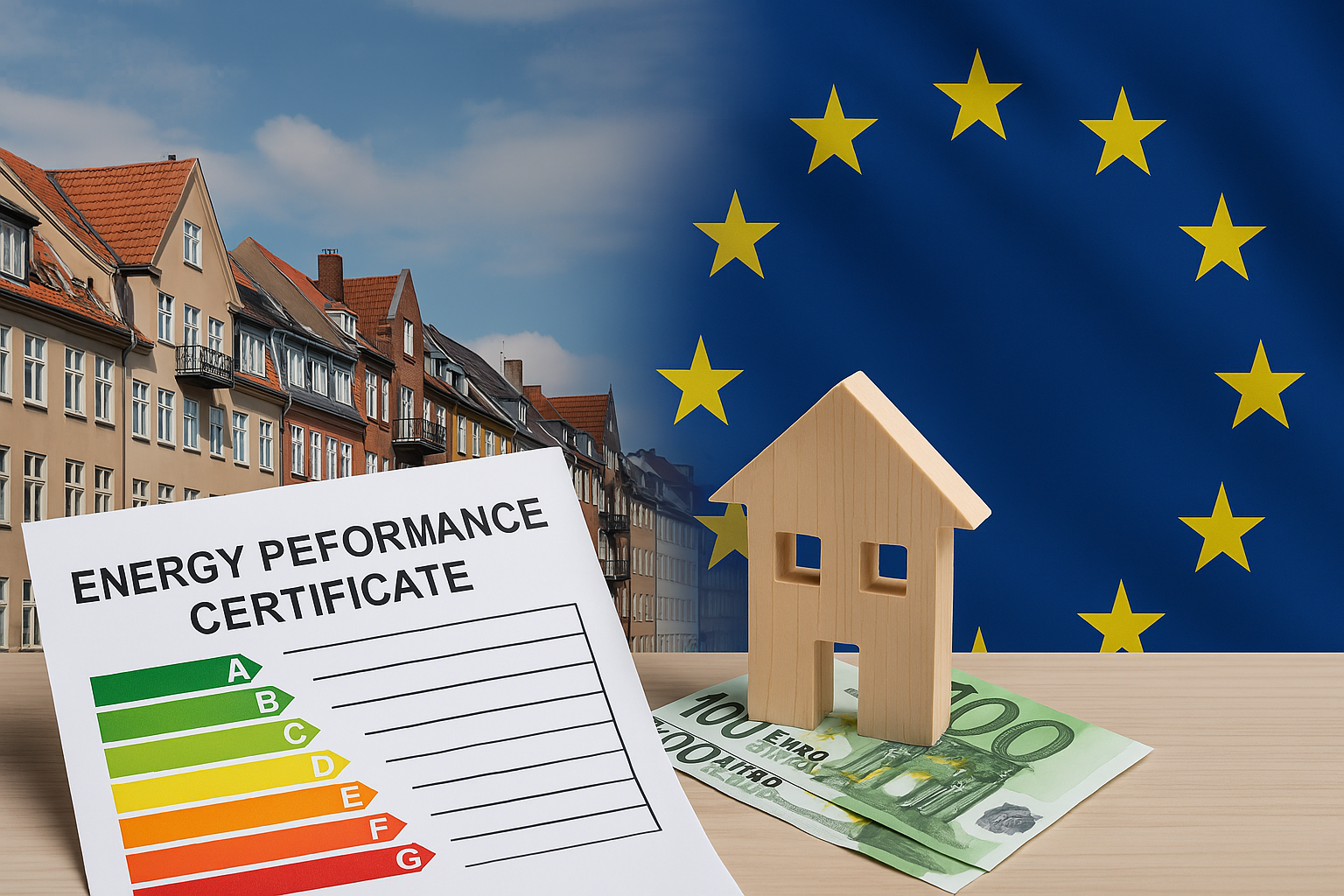EU reform to condition sale and rental of properties on energy efficiency: what changes under the new directive?
Energy efficiency will be mandatory for property sales.

The European Union
is revising its residential property regulations in line with more ambitious climate goals. The newly adopted Energy Performance of Buildings Directive (EPBD)—approved by both the European Parliament and the Council of the EU—requires Member States to implement specific measures to reduce energy consumption in buildings, directly affecting the sale and rental market across the continent.
🌍
What will change in practice?
With the implementation of the new directive, EU countries must ensure:
- No property with an energy rating below class E may be sold or rented as of 2030 (deadlines may vary by country);
- All new buildings must be carbon neutral by 2030;
- There is a gradual renovation of the current building stock to ensure higher energy performance by 2050, aligned with the EU’s climate neutrality target.
Each Member State retains flexibility to define its own certification methods and timelines, but minimum efficiency standards for sales and rentals will be mandatory across the EU.
🏠
Spain as an example: direct impact on the real estate sector
In Spain, it is estimated that over 80% of residential properties
fail to meet the minimum energy standards. Under the new directive, properties that do not meet the efficiency requirements
may no longer be eligible for sale or lease, unless properly renovated or covered by an approved improvement plan.
Although the Spanish government has introduced financial and fiscal incentives for energy-related renovations, the
costs will largely fall on property owners.
💶 A burden or an opportunity?
While many view the reform as a burden—forcing expensive renovations to older buildings—it also opens several opportunities:
- Investors can benefit from subsidies to modernize real estate;
- Sustainable properties will likely appreciate in value;
- Green construction and energy tech companies are expected to see significant growth.
🏗️
What does this mean for Brazil?
For European investors seeking opportunities in Brazil—or for Brazilian entrepreneurs aiming to expand into Europe—it is crucial to recognize that
ESG and energy efficiency standards are already enforced norms in the EU, not just trends.
Equity Investment Business supports both investors and entrepreneurs in navigating European regulatory requirements, from project assessment to legal compliance—fostering secure and sustainable cross-border investments.
📚 Official Sources:
- European Commission: Directive on the energy performance of buildings (recast)
- European Parliament: New EU rules on energy performance of buildings
- Council of the European Union: Council adopts revised directive on building energy performance
